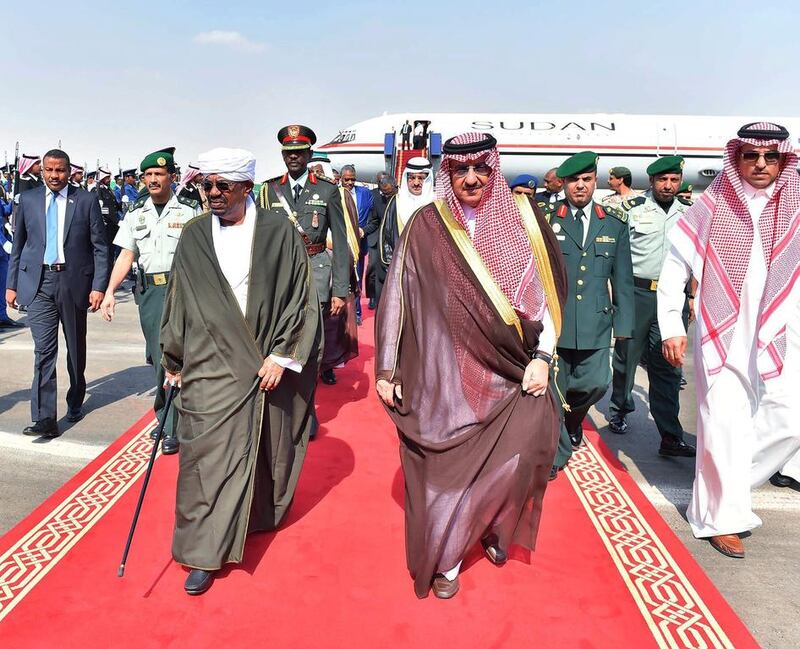ADEN // Yemen’s popular resistance fighters pressed deeper into Taez city on Tuesday as air strikes by the Saudi-led coalition pounded rebel positions to help ground forces advance.
The offensive came a day after the pro-government forces entered the provincial city via a new route they forged with the help of armoured vehicles supplied by the UAE.
However, the resistance — made up of Yemeni soldiers and tribal forces loyal to the internationally-recognised president Abdrabu Mansur Hadi — could not advance quickly due to landmines and the large civilian population in the city, Taez Tawfeeq Al Adimi, a Yemeni fighter told The National.
“The Houthis planted the landmines to prevent the forces from advancing in the city, but the resistance will find a solution for the landmines and will advance step by step,” he said.
Mr Al Adimi said landmines had been planted by the Houthis as they fled the areas of Salah, Kilabah, Tha’abat and Al Hawban. The Iran-backed rebels and their allies, renegade soldiers defected from the Yemeni army, employed similar tactics as they withdrew from most of Marib Province last month.
The Houthis have also been shelling civilian homes in Taez — even those in the liberated areas such as Tha’abat, Zaid Al Moshki and Kilabah — killing a number of people inside their homes, Mr Al Adimi said.
“When the military vehicles target the Houthis in Taez city or when the forces advance in new areas, the Houthis target the houses of the civilians randomly,” he added.
“Taez city is full of residents and this is why the resistance did not advance quickly,” he added pointing out that the resistance, with support from coalition forces, were preparingto capture the whole of the city.
The resistance are hoping to open additional roads into Taez that would allow more military vehicles to enter the built-up areas and help break the rebels’ siege of the city, said Mr Al Adimi.
“New military reinforcements [from Aden] will arrive in Taez city in the next few days ... there will also be coordination with the coalition forces to send us military vehicles from Aden,” Mr Al Adimi added.
The Houthis have started to take up positions in the rural areas in the west of Saber mountain, one of Yemen's highest peaks, and the surrounding areas near the main road that connects Taez with Lahj and Aden provinces, a source in the east of Saber mountain told The National on condition of anonymity.
“I think that the Houthis are planning to target the reinforcement of the resistance that come from the south or they will block the road, because they only started to spread in these areas two days ago,” the source added.
Meanwhile, clashes continued in the areas surrounding the republican palace in Taez city, Al Dhabab and the Forty-Metre street, while the air strikes pounded Houthi positions in several areas in Taez. There were no figures on the number of casualties.
In Aden, guards at the Maashiq presidential palace clashed with militiamen providing security for the complex in a dispute over unpaid wages.
At least two members of the presidential guard were wounded in the shoot-out on Tuesday, said a military source.
The presidential guard is led by one of the sons of Mr Hadi, who returned briefly to Aden in September but has since gone back to Riyadh where he was in exile after the Houthi assault started in September 2014.
Soldiers clashed with fighters from the Popular Resistance who were protesting a delay in their wages.
“The fighting has subsided, but tension remains at the Maashiq palace,” the source said.
The palace was severely damaged during the fighting between Hadi loyalists and the rebels, but was recently repaired by the UAE, which along with Saudi Arabia is taking a lead role in helping restore the government of Mr Hadi.
Mr Hadi declared Aden a temporary capital after he fled house arrest in Sanaa in February, months after the insurgents overran the capital.
Also on Tuesday, the Sudanese president Omar Hassan Al Bashir arrived in Riyadh where he was met by crown prince Mohammed bin Nayef. Hundreds of Sudanese troops arrived in Yemen last month to join the coalition forces.
foreign.desk@thenational.ae
*With additional reporting from Agence France-Presse





